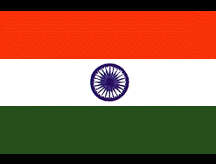
|

|
This seminar examines war in society, with a particular focus on the transition to British colonial rule in India from 1757 (the battle of Plassey) to 1857 (the Sepoy Rebellion). Though we will be concerned with the outcome of specific battles, the decision-making processes implicit to military command and the varying merits of weaponry. Of greater importance to the seminar will be discerning the social, cultural, and technological dimensions of war-making in an India that was increasingly tied to Europe. We will begin with a general theoretical consideration of the history of warfare and its relation to state-building before turning to the complexities of the Indian scene around 1750. Our examination of the transition to British colonial rule will hinge on the related questions of martial identity (i.e., as Rajput, Sikh, Maratha, Naga, Sepoy, Afghan, Gurkha, etc.) and military recruitment, and how issues of caste informed the process of war-making and state-building in southern Asia. Of particular interest in this regard will be the rise of the English East India Company's Bengal Army, one of the most successful military machines of its time--until it ventured through the Khyber Pass and into Afgfhanistan in the late 1830s and then rose up in revolt in May 1857. One of our final questions will be whether this military mutiny also constituted and/or joined forces with a popular, peasant-based rebellion.
COURSE FORMAT: Lecture
Level: UGRD Credit: 1 Gen Ed Area Dept: SBS HIST Grading Mode: Student Option
Prerequisites: NONE Links to Web Resources For This Course.
Last Updated on MAR-21-2005
Copyright Wesleyan University, Middletown, Connecticut, 06459